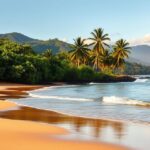Can Rentista Visa Holders Work in Costa Rica? | JARO S.C.R.
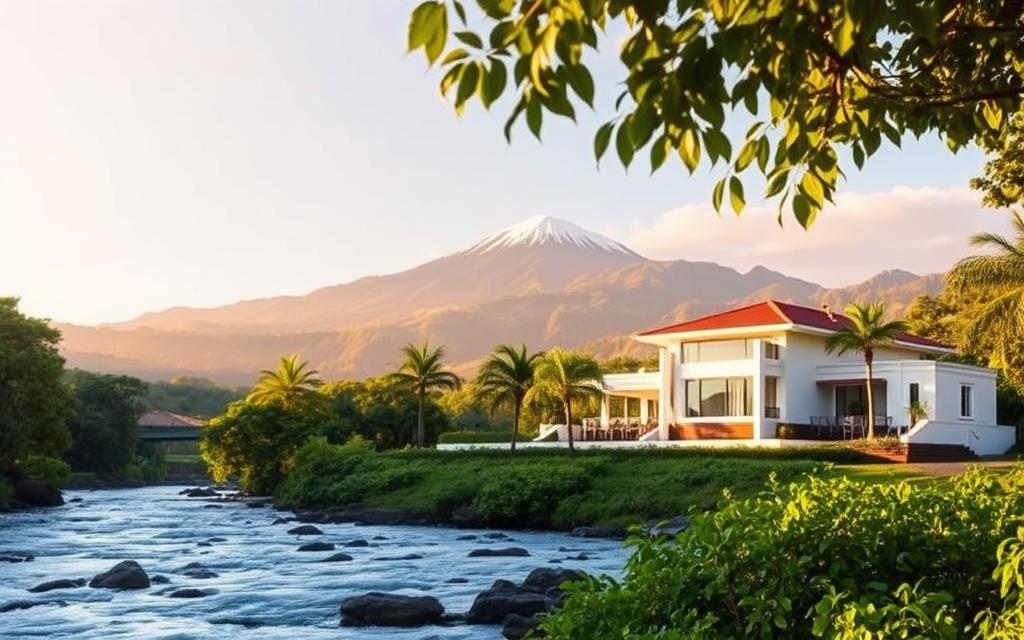
Did you know that over 120,000 Americans have chosen to relocate to Costa Rica? This Central American gem has become a top destination for those seeking a better quality of life. With its stunning natural beauty, mild climate, and vibrant culture, it’s no wonder so many are drawn to this welcoming country.
For individuals and families, residency in Costa Rica offers new opportunities and a stable environment. The country is known for its excellent healthcare system, affordable living costs, and friendly communities. Many expats find it an ideal place to settle and thrive.
At JAROS C.R., we guide prospective residents through the process of understanding their options. Whether you’re exploring the Rentista visa or other pathways, we’re here to help you navigate the journey. Let’s dive into what makes Costa Rica a unique and attractive choice for your next chapter.
Introduction to Residency in Costa Rica
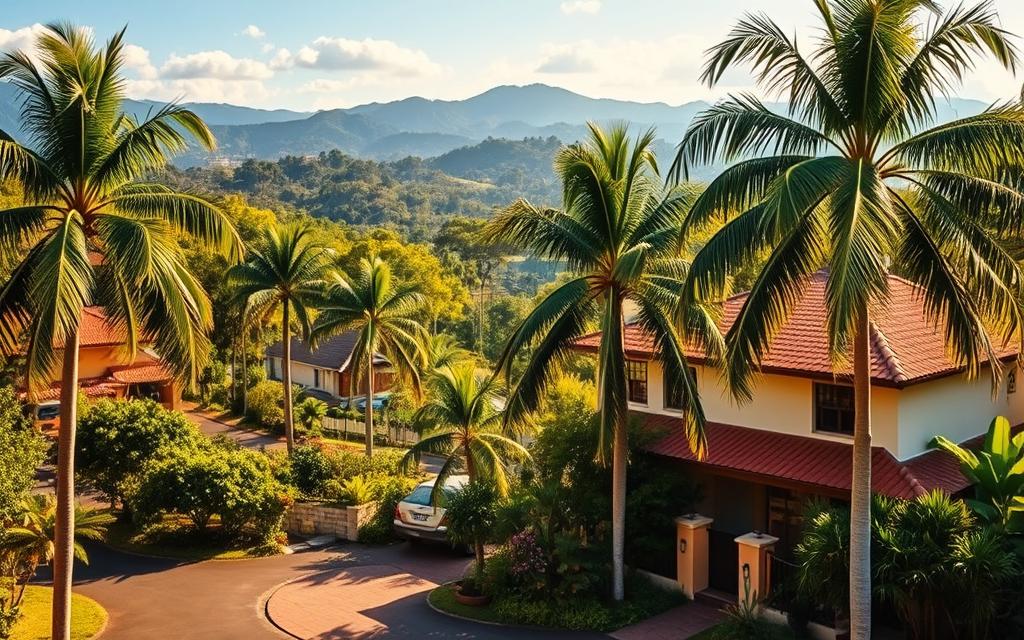
Costa Rica’s allure as a residency destination continues to grow year after year. Its welcoming culture and diverse environment make it a top choice for individuals and families seeking a new home. The country’s democratic stability and high resident satisfaction rates further enhance its appeal.
Exploring a Welcoming and Diverse Environment
Costa Rica is celebrated for its friendly communities and vibrant culture. Expats often find it easy to integrate into the local lifestyle, thanks to the country’s inclusive atmosphere. From bustling cities to serene beaches, the diverse landscapes offer something for everyone.
Quality of Life and Cultural Richness
Living in Costa Rica means enjoying a high quality of life. The country boasts a robust healthcare system and excellent educational opportunities. Its cultural richness, from traditional festivals to local cuisine, adds to the unique experience of making it your home.
At JAROS C.R., we understand the appeal of Costa Rican residency. Whether you’re drawn to the natural beauty or the welcoming communities, we’re here to help you navigate the process. For more insights, explore why residency in Costa Rica is worth.
Overview of Costa Rica's Rentista Visa Program
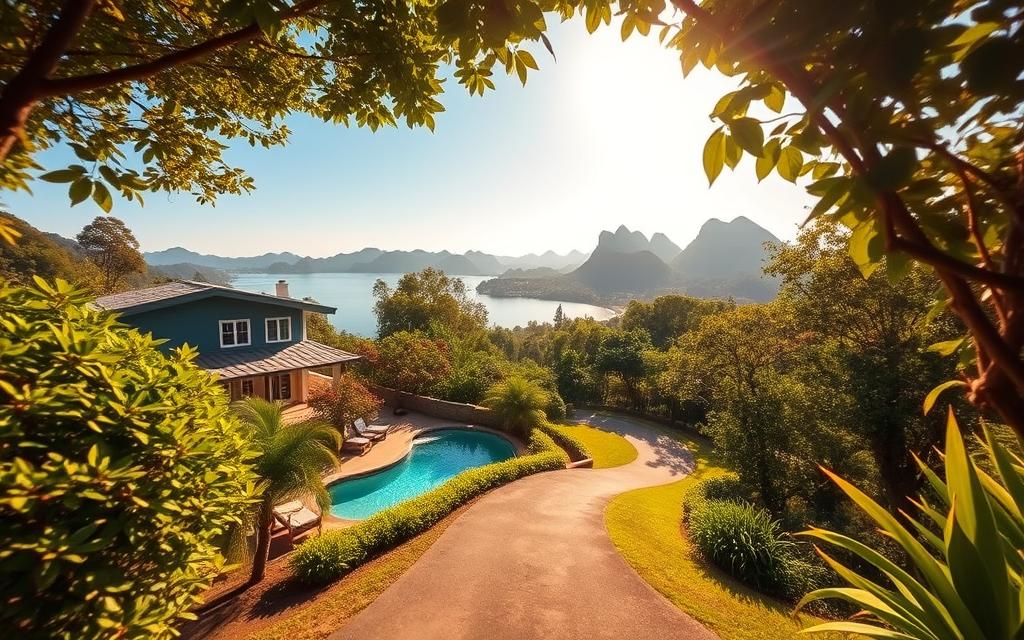
Costa Rica offers a unique residency program tailored for those with stable passive income. This option is ideal for individuals who can demonstrate consistent financial resources without relying on employment or self-employment. Let’s explore the key aspects of this program.
Eligibility and Income Requirements
To qualify, applicants must prove a steady monthly income of at least $2,500. This income must come from passive sources such as investments, rental properties, or pensions. Proof of this income is a critical part of the application process.
Acceptable documents include notarized letters, official contracts, or bank statements. These must verify the income source and its consistency over at least two years. Ensuring all documents meet the requirements is essential for a successful application.
Key Features and Limitations
The Rentista program grants temporary residency for two years, with the option to renew. However, it does not allow income from employment or self-employment. This makes it suitable for retirees or those with passive income streams.
After maintaining residency for three years, individuals can apply for permanent status. This pathway provides long-term stability for those committed to making Costa Rica their home. For more details, explore the Rentista program on our website.
Can rentista visa holders work in Costa Rica?
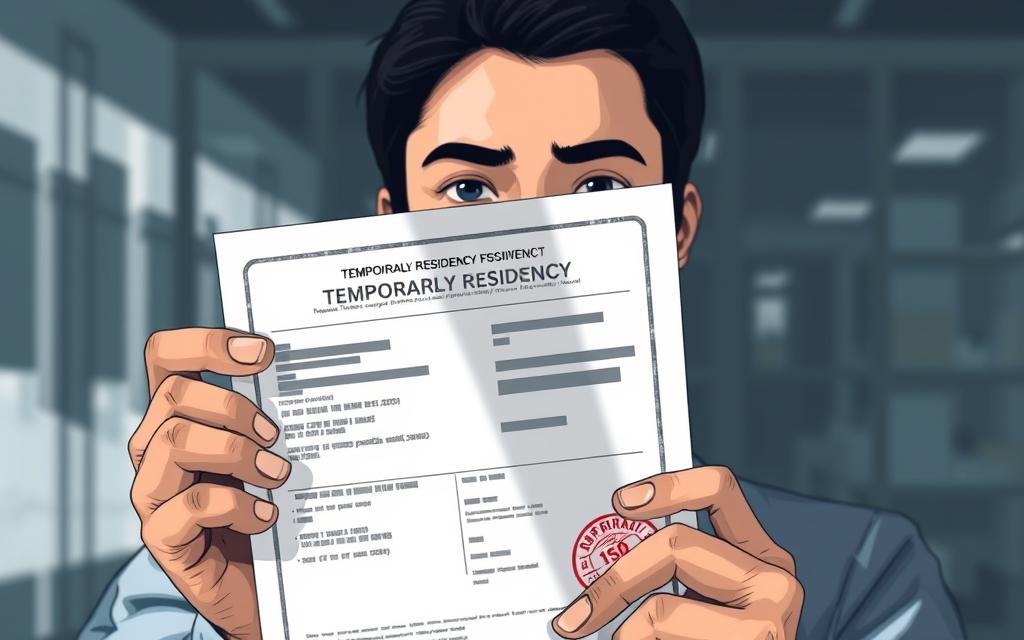
Understanding the legal framework for temporary residency is essential for expats. Costa Rica’s immigration laws prioritize job opportunities for citizens and permanent residents. This means temporary residents face specific restrictions when it comes to formal employment.
Legal Restrictions for Temporary Residents
Temporary residents under the Rentista program are generally prohibited from engaging in formal employment. This is because the program is designed for individuals with stable passive income, not those seeking local jobs. However, many expats find ways to work remotely without conflict.
Remote work is a popular option, as it aligns with the program’s requirements. While immigration authorities may not enforce strict rules on remote work, it’s important to stay informed about legal boundaries. Consulting with experts can help ensure compliance.
Pathways to Transition from Temporary to Permanent Residency
After maintaining temporary residency for three years, individuals can apply for permanent status. This transition opens up new opportunities, including the right to work without restrictions. Permanent residency is a significant step for those committed to making Costa Rica their long-term home.
The process involves submitting updated documentation and meeting specific criteria. At JARO S.C.R., we guide clients through every step, ensuring a smooth transition. Permanent residency not only grants work rights but also enhances stability and integration into the community.
Benefits of Choosing Costa Rica Residency
Choosing residency in Costa Rica unlocks a wealth of benefits for expats and retirees alike. From access to top-tier healthcare to streamlined banking services, the advantages are numerous. This Central American gem is not just a place to live but a destination to thrive.
Access to Robust Healthcare and Banking Services
One of the standout benefits is enrollment in Costa Rica’s public health system, the Caja Costarricense de Seguro Social (CCSS). This system provides comprehensive coverage, including doctor visits, hospital stays, and prescriptions. For retirees, this means peace of mind knowing their health needs are met affordably.
Banking services are equally accessible for residents. Opening a local account is straightforward, and many banks offer services tailored to expats. This simplifies managing finances, whether it’s receiving a pension or handling investments.
Pathway to Citizenship and a Second Passport
Residency is often the first step toward becoming a citizen. After maintaining residency for several years, individuals can apply for citizenship. This grants the privilege of holding a second passport, which can be invaluable for global travel and business opportunities.
Financial Advantages for Retirees
Retirees benefit from favorable pension requirements and reduced tax burdens on foreign income. The cost of living is significantly lower than in many Western countries, making it easier to stretch retirement savings. Monthly expenses, from groceries to utilities, are affordable and manageable.
For those with a pension, the Pensionado program offers additional perks, including discounts on services and entertainment. This makes Costa Rica an attractive option for retirees seeking a comfortable and fulfilling lifestyle.
Comparing Rentista, Pensionado, and Inversionista Options
Choosing the right residency pathway in Costa Rica can significantly impact your lifestyle and financial planning. Each option caters to different needs, whether you’re an investor, retiree, or someone with passive income. Understanding the distinct criteria and benefits of each program is essential for making an informed decision.
Different Criteria and Income Thresholds
The Rentista program requires a minimum monthly income of $2,500 from passive sources like investments or pensions. This option is ideal for those who don’t plan to engage in local employment. On the other hand, the Pensionado program is tailored for retirees, with a lower income threshold of $1,000 per month from a reliable pension source.
For investors, the Inversionista program stands out. It requires a minimum investment of $200,000 in a Costa Rican business or property. This pathway is perfect for those looking to contribute to the local economy while securing residency. Each program has unique financial criteria, making it crucial to evaluate your resources and goals.
Advantages for Investors and Retirees
The Pensionado program offers retirees access to Costa Rica’s robust healthcare system and discounts on services. It’s a cost-effective option for those on a fixed income. Meanwhile, the Inversionista program provides investors with opportunities to grow their business while enjoying the benefits of residency.
The Rentista option is flexible, allowing individuals to maintain their lifestyle without the need for local employment. Each pathway has its strengths, and selecting the right one depends on your financial situation and long-term plans. For more details on legal requirements, explore our guide on residency in Costa Rica.
Application Process for Rentista Residency
Navigating the Rentista residency application process can seem daunting, but with the right guidance, it becomes manageable. This section breaks down the essential steps, from preparing your documents to submitting your application and meeting legal requirements. We’ll walk you through each phase to ensure a smooth and successful experience.
Step-by-Step Document Preparation
The first step in the application process is gathering and preparing the necessary documentation. This includes proof of stable income, such as bank statements or notarized letters, and other required paperwork like birth certificates and criminal background checks. All documents must be apostilled or legalized if issued outside the country.
It’s crucial to ensure that your documents are translated into Spanish by a certified translator. This step can take several weeks, so it’s best to start early. Organizing your paperwork in advance will save time and reduce stress during the submission process.
Navigating the Submission Process
Once your documents are ready, the next step is submitting your application. This involves scheduling an appointment with the immigration office and paying the required fees. The submission process can take up to 90 days, though delays are common, so patience is key.
During this phase, you’ll also need to provide fingerprints and attend any required interviews. Keeping track of deadlines and ensuring all forms are correctly filled out will help avoid unnecessary setbacks. Our team at JARO S.C.R. is here to assist with every detail.
Dealing with Legal Requirements
Meeting legal requirements is a critical part of the application process. This includes adhering to income thresholds, ensuring all documents are properly authenticated, and understanding the residency renewal process. Temporary residency is valid for two years, with the option to renew.
After three years of maintaining temporary residency, you can apply for permanent status. This transition opens up new opportunities, including the right to work without restrictions. For more details on this transition, explore our guide on how to transition from Rentista to permanent.
Essential Documentation for Rentista Visa Approval
Accurate paperwork is the cornerstone of a successful Rentista visa application. Submitting the right documents ensures a smooth process and avoids unnecessary delays. We’ve compiled a comprehensive guide to help you prepare everything you need.
Essential documents include a valid passport, police certificates, and proof of stable income. These must demonstrate a consistent monthly source of at least $2,500 for two years. Bank statements, notarized letters, or official contracts are commonly accepted.
For family members included in the application, additional paperwork is required. Birth certificates, marriage certificates, and proof of dependency must be submitted. Ensuring all documents are apostilled or legalized is crucial if they originate outside the country.
Translation into Spanish by a certified translator is mandatory for non-Spanish documents. This step can take time, so it’s best to start early. Properly organized and authenticated paperwork significantly increases your chances of approval.
Here’s a quick checklist to guide you:
- Valid passport with at least six months’ validity.
- Police certificates from your home country.
- Proof of income from a reliable source.
- Birth and marriage certificates for family members.
- Translated and apostilled documents.
Thorough and accurate documentation is key to securing your Rentista visa and achieving long-term residency. Our team is here to assist you every step of the way, ensuring a seamless experience.
Understanding Temporary vs. Permanent Residency in Costa Rica
Understanding the differences between temporary and permanent residency is key to planning your future. Each status comes with unique benefits and limitations that can impact your lifestyle and opportunities. Whether you’re exploring short-term options or aiming for long-term stability, knowing the distinctions is essential.
Temporary Residency Limitations
Temporary residency is typically granted for two to three years. While it allows you to live in the country, it comes with certain restrictions. For example, temporary residents often face limitations on formal employment and may need to renew their status periodically.
Travel can also be restricted, as temporary residents must ensure their documents are up to date. Despite these limitations, many expats find this status a valuable stepping stone toward permanent residency.
Criteria for Permanent Residency
Transitioning to permanent residency requires meeting specific criteria. Applicants must demonstrate consistent income or investment over a period of at least three years. This ensures financial stability and commitment to the country.
Permanent residency offers significant advantages, including full work rights and access to government services. It also opens the door to real estate opportunities, making it an attractive option for long-term planning.
After maintaining permanent residency for several years, individuals can apply for citizenship. This grants the privilege of holding a second passport, which can be invaluable for global travel and business opportunities.
At JARO S.C.R., we guide clients through every step of the residency process. Whether you’re exploring temporary options or aiming for permanent status, we’re here to help you achieve your goals in Costa Rica.
Additional Visa Options for Expats in Costa Rica
Costa Rica provides a variety of residency pathways tailored to different lifestyles and financial situations. Whether you’re a remote worker, retiree, or investor, there’s a program designed to meet your needs. Let’s explore the Digital Nomad, Pensionado, and Inversionista visas, along with their unique benefits and requirements.
Digital Nomad Visa
The Digital Nomad visa is perfect for remote workers seeking to live in Costa Rica while maintaining their jobs abroad. Applicants must demonstrate a minimum monthly income of $3,000 for singles or $4,000 for families. This program allows you to enjoy the country’s natural beauty and vibrant culture without the need for local employment.
Pensionado Visa
Retirees with a fixed pension can benefit from the Pensionado visa. This option requires a minimum monthly income of $1,000 from a reliable pension source. It offers access to Costa Rica’s robust healthcare system and discounts on services, making it an affordable choice for retirees.
Inversionista Visa
For those looking to invest in Costa Rica, the Inversionista visa is an excellent option. It requires a minimum investment of $200,000 in a local business or property. This program not only grants residency but also allows investors to contribute to the country’s economy while enjoying its benefits.
Each of these programs caters to different profiles, from remote workers to retirees and investors. By understanding their unique features, you can choose the pathway that best aligns with your goals and lifestyle. For personalized guidance, our team is here to help you navigate the process and make the most of your residency experience.
Strategies to Maximize Your Residency Experience
Making the most of your residency in Costa Rica requires thoughtful planning and strategic financial management. By focusing on long-term goals and understanding the process, you can ensure a smooth and rewarding experience. Here’s how to optimize your journey and make the most of your time in this beautiful country.
Long-term Planning for Residency Success
Transitioning from temporary to permanent residency is a key milestone. Start by familiarizing yourself with the requirements and timelines. This ensures you meet all criteria and avoid delays. Planning ahead also helps you navigate legal obligations and maintain a stable residency record.
Consider consulting with experts to streamline the process. They can provide guidance on documentation, deadlines, and compliance. Staying organized and proactive will make your journey smoother and less stressful.
Effective Financial Management
Managing your finances wisely is essential for a successful residency. Take advantage of local banking services to simplify transactions and reduce costs. Opening a local account can help you manage expenses, receive income, and access financial products tailored to expats.
Budgeting is another critical aspect. Costa Rica offers an affordable cost of living, but careful planning ensures you maximize savings. Track your expenses, explore discounts, and invest in local opportunities to enhance your financial stability.
Best Practices for a Stable Residency
Maintaining a stable residency record requires continual engagement with government requirements. Stay updated on changes in immigration laws and ensure all documents are current. Regular check-ins with your legal advisor can help you stay compliant and avoid pitfalls.
Building a strong network within the expat community is also beneficial. They can share insights, tips, and support to help you navigate challenges. By following these strategies, you can enjoy a fulfilling and stress-free life in Costa Rica.
Insights into the Costa Rican Lifestyle for Expats
Expats in Costa Rica enjoy a lifestyle that balances adventure with stability. The country’s welcoming communities and vibrant culture create an enriching experience for individuals and families alike. Whether you’re drawn to the bustling cities or serene beaches, there’s something for everyone in this Central American gem.
Community, Culture, and Natural Beauty
Costa Rica’s lifestyle offers a unique blend of modern conveniences and natural wonders. Expats often find themselves immersed in a community that values connection and collaboration. From local markets to cultural festivals, there’s always an opportunity to engage with the vibrant traditions of the region.
The country’s natural beauty is unparalleled. With lush rainforests, pristine beaches, and diverse wildlife, it’s easy to feel connected to nature. Many expats take advantage of outdoor activities like hiking, surfing, and birdwatching, which contribute to a fulfilling and active lifestyle.
Cultural events and community initiatives play a significant role in enriching resident lives. From traditional dances to local art exhibitions, these activities foster a sense of belonging and cultural appreciation. Expats often find that participating in these events helps them integrate into the community and build lasting relationships.
Life in Costa Rica appeals to both young professionals and retirees. The balance between modern amenities and natural surroundings creates an environment where individuals can thrive. Whether you’re seeking adventure or a peaceful retreat, this country offers a lifestyle that caters to diverse needs.
For those considering a move, understanding the day-to-day lifestyle is essential. From affordable living costs to a robust healthcare system, Costa Rica provides the stability and resources needed for a comfortable life. To learn more about settling in, explore our guide on what to do after getting residency.
Conclusion
Exploring residency options in this Central American paradise opens doors to a fulfilling lifestyle. From the Rentista program to Pensionado and Inversionista pathways, there’s a way to match your financial goals and lifestyle needs. Each option offers unique benefits, including access to robust healthcare, vibrant culture, and affordable living costs.
Understanding the legal requirements and eligibility criteria is essential for a smooth transition. Whether you’re drawn to the natural beauty or the welcoming communities, residency here provides stability and opportunities for growth. Real estate investments or passive income streams can further enhance your experience.
Take the first step toward your new chapter. At JARO S.C.R., we’re here to guide you through every detail. Discover how to make this dream a with our expert support.


